Emirati investment in Turkey paves the way for reconciliation between Ankara and Abu Dhabi
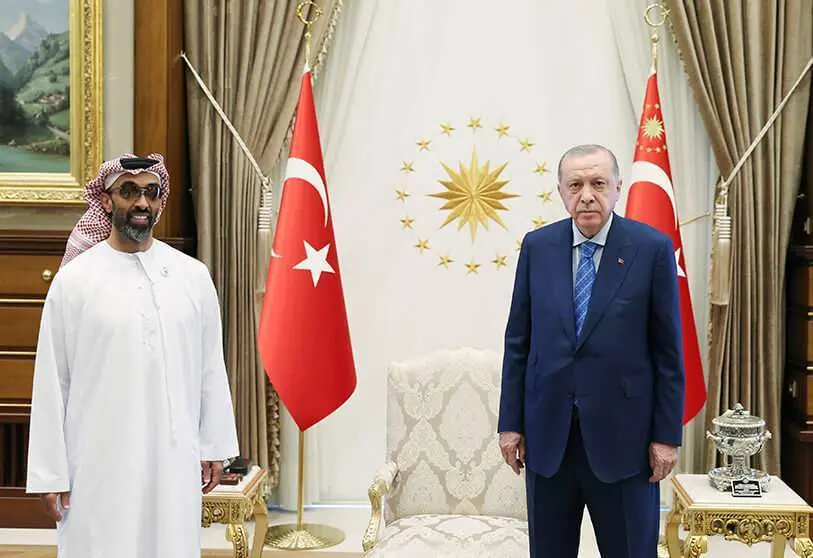
The bitter regional rivalry between Turkey and the UAE enters a new arena. Ankara and Abu Dhabi, sworn enemies in the Middle East, are working to heal the wounds in their bilateral relations after decades of political and military confrontation. On Wednesday, the two sides laid the groundwork for a possible reconciliation that could even see the start of close cooperation in a number of areas.
Turkish President Recep Tayyip Erdogan received UAE National Security Advisor Sheikh Tahnoun bin Zayed Al Nahayan, one of the scions of the country's founder and a member of the regime's hard core, in Ankara. The two sides came closer together and discussed possible avenues of cooperation. In this regard, the parties agreed that a significant breakthrough had been achieved.
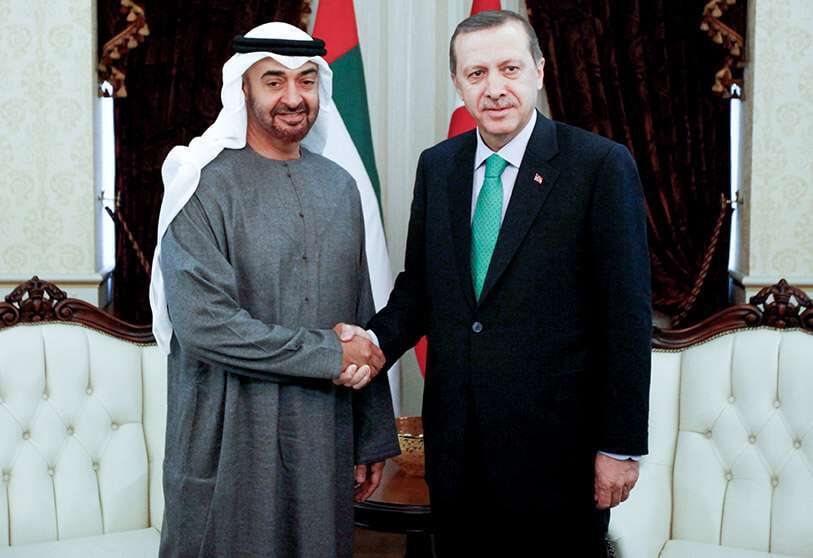
The terms of the conversation revolved around possible Emirati investment in Turkey. "They have a very serious investment objective, an investment plan," Erdogan said during an interview broadcast after the meeting. "We discussed what kind of investments could be made and in what areas," he said. The Ottoman country is in a difficult economic situation caused by high inflation and a galloping devaluation of the lira. Ankara is aware of the need to attract foreign capital to revive its economy, and Abu Dhabi is aware of its partner's need.
"For several months now... starting with our intelligence unit, by having some talks with the Abu Dhabi administration, we have reached a certain point," the Turkish leader said. "I am also considering meeting with Sheikh Mohammed bin Zayed," Erdogan revealed. A declaration of intent that, if realised, would open a new chapter in diplomatic relations between the two countries and redefine the geopolitical order not only in the region, but on a larger scale.
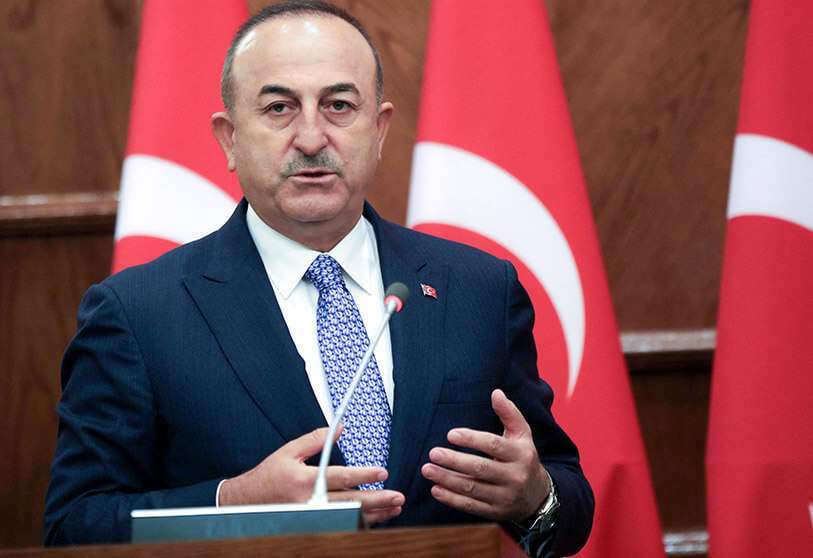
Turkish Foreign Minister Mevlut Cavusoglu had previously asserted that there was 'no reason' to upgrade relations with the UAE. However, the diplomat is the architect of the meeting at the Presidential Complex. Cavosuglu reportedly called his Emirati counterpart, Abdullah bin Zayed, to congratulate him on the holy month of Ramadan. From there, the rapprochement began to cook. Local media also confirm that the Turkish foreign minister has done the same with the representatives of Jordan and Israel.
Former Emirati foreign minister Anwar Gargash described the meeting as "historic and positive". The current diplomatic adviser to President Khalifa bin Zayed Al Nahayan, who is particularly critical of Erdogan's expansionist agenda, praised the principle of détente. "The UAE continues to build bridges and consolidate relations," he tweeted. The Emirati president's chief advisor insisted: "Divergence of attitudes on some issues will not hinder communication and enhanced opportunities for stability, prosperity and development".
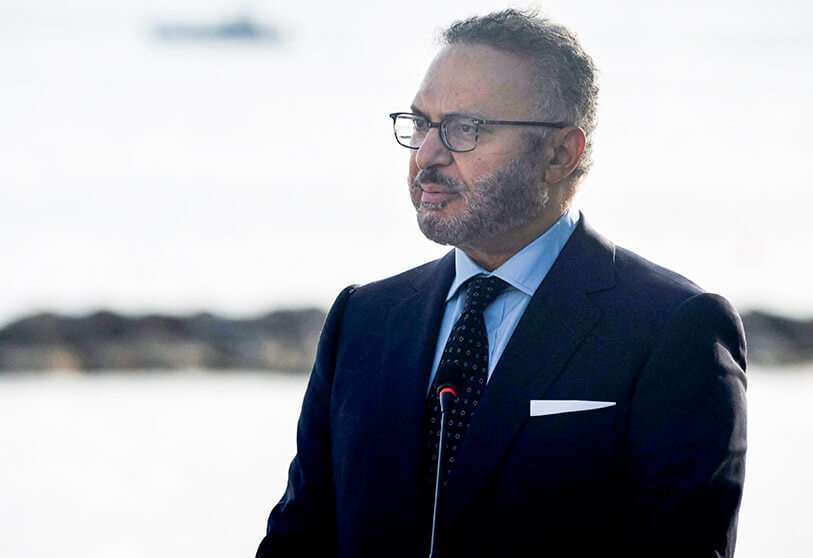
The meeting marks a turning point in the Middle East, initiated in the wake of the Al-Ula agreements. At the summit, Saudi Arabia, the United Arab Emirates, Egypt and Bahrain normalised relations with Qatar, Turkey's only major partner in the region. The aim then was to curb Doha's support for the Muslim Brotherhood, a common agenda with Turkey. Indeed, this point is at the root of friction between Ankara and Abu Dhabi, as well as between Ankara and Cairo and Riyadh.
The rifts began with Erdogan's support for political Islamism after the revolutionary outbreak of 2011, and continued with the conflicts in Syria, Libya and Yemen. The Turkish president saw the Arab Spring as an opportunity to overturn the status quo in the region and impose his agenda, but the Gulf monarchies, including the Emirates, interpreted his aspirations as a threat to their stability. From then on, the support for different sides in Libya, the disparity of criteria in Yemen and Syria, and the cross criticism in foreign policy matters marked the rupture.
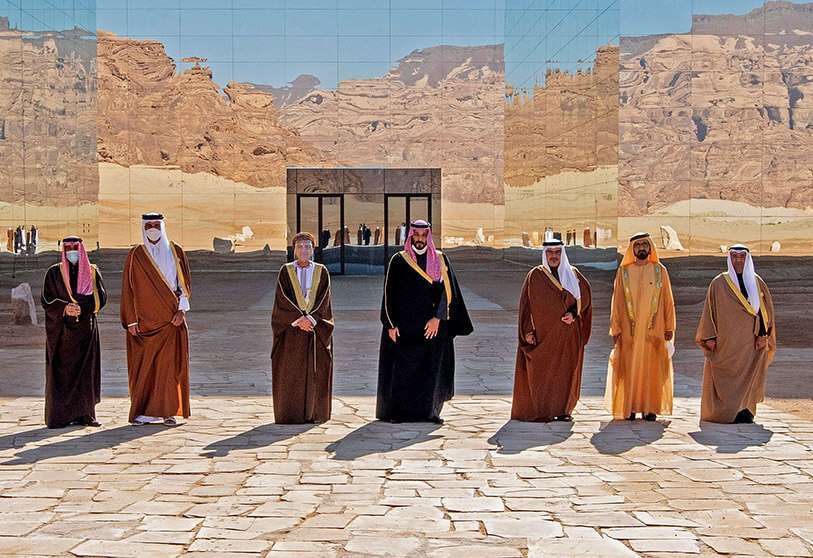
Years later, the pieces seem to be falling into place. The rapprochement between Turkey and the UAE is part of Turkish diplomacy's strenuous attempts to ease relations with its neighbours. Turkey is in a weak position as a result of the COVID-19 crisis and the hydrocarbon dispute in eastern Mediterranean waters, among others, and needs external reinforcement. So far, Ankara's strategy of appeasement has had little success. While it had reached a rapprochement with Saudi Arabia and Egypt, it lacked the approval of the Emirates to achieve the triad. Now it seems to be beginning to be consummated.
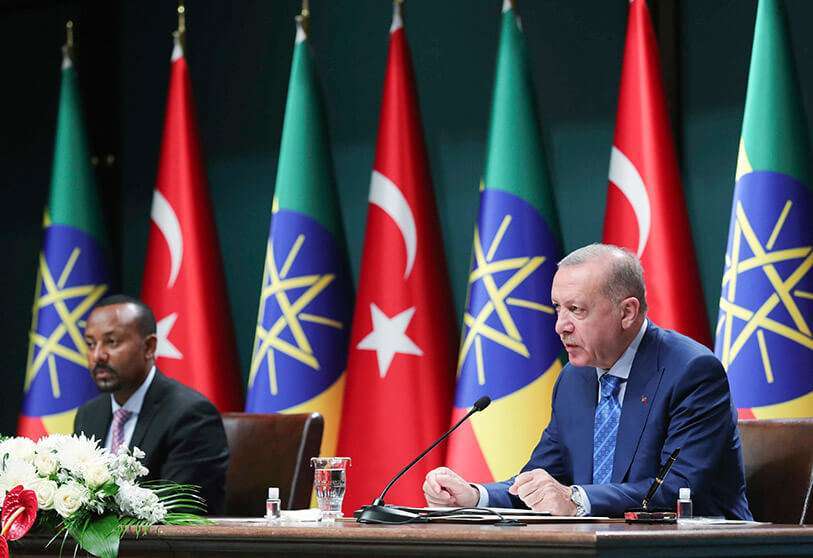
Ethiopia's Prime Minister and Nobel Peace Prize winner Abiy Ahmed travelled to the Ottoman capital on Thursday for a bilateral summit with President Erdogan. The visit coincides with the 125th anniversary of the establishment of bilateral relations, but the context is less friendly for Ahmed. The Ethiopian leader is looking for partners abroad at the same time as the conflict in Tigray is festering. Ahmed himself had to call on citizens to enlist in the army as the dispute spreads to other regions.
This is not the only problem dragging down the African head of government. The terms of the Grand Ethiopian Renaissance Dam, which irritates Egypt and Sudan, as well as his border dispute with Sudan, are a headache for Ahmed. In this context, Erdogan emerges as a mediating figure with interests on the continent.








